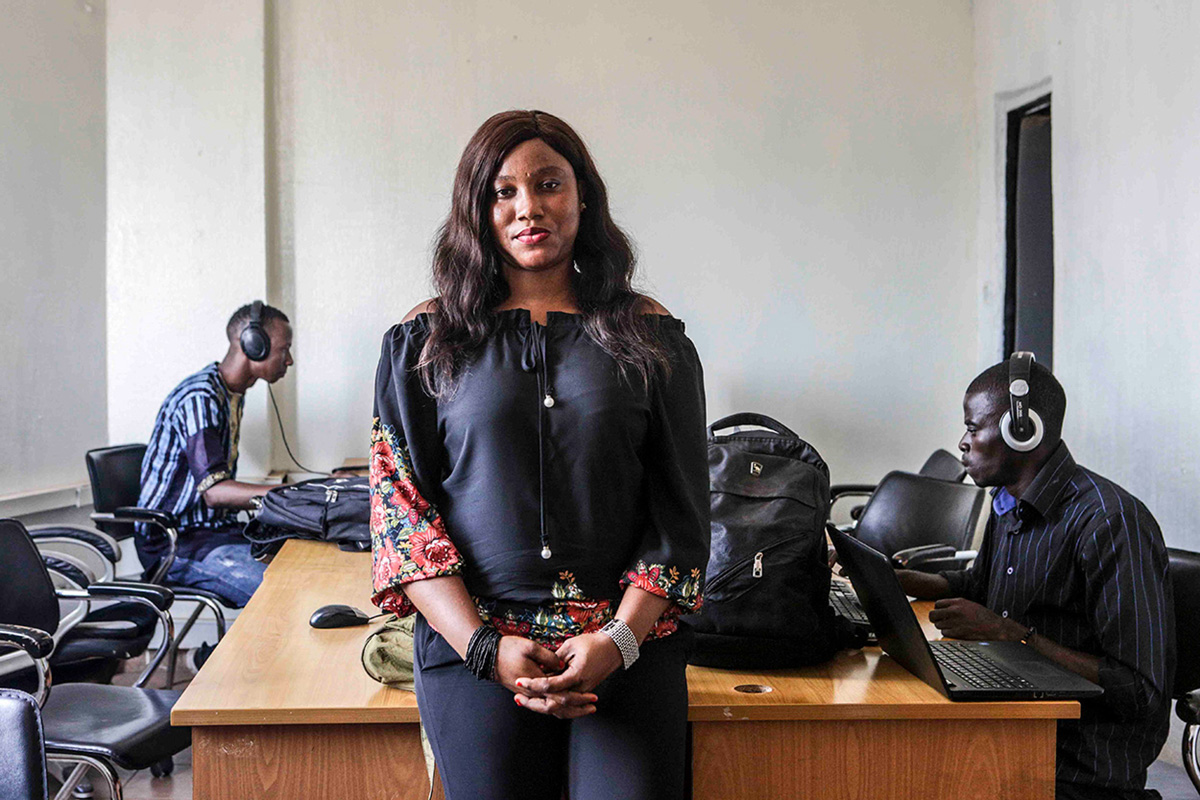
“The average citizen takes for granted what [...] she reads in the press. We journalists must place this responsibility above all else.”
At six o’clock in the morning, Conakry is still sleeping. Keita is awake, excited about the day ahead. She reaches for her phone, “to read the news, to find out what’s happening in the world and Guinea.”
Being a journalist is not just a job for Keita. The days are long, yet fatigue doesn’t matter. “I get up early; I come home late. But at the end of the day, I feel like I have contributed to serving my country. That’s where I draw all my strength, my courage,” she says.
In February, Keita added new tools to her belt when she participated in our training in conflict sensitivity and rumor management, as part of our USAID-funded project Building Electoral and Accountability Capacities, Orderly Norms, and Democratic Governance.
“This training came at just the right time. I learned a lot about our responsibility in times of crisis. We were one week away from the elections. It was a difficult time for Guinea. The tension was pervasive throughout the country, with clashes increasing. Our role was essential in calming the population. Our words can both unite or set the country on fire,” says Keita.
Our journalist’s answers are clear and concise. She chooses her words carefully. Keita knows that the same information can have a very different impact: “If I point the finger at a particular ethnic group during a confrontation, I open the door to retaliation. I can report this information by saying that there have been clashes between Guinean citizens. I must inform without throwing oil on the fire”.
Today, as social networks have become a significant source of information for citizens, journalists must be all the more vigilant. During a two-day training, our teams discussed how to deal with rumors. “If I had disseminated information without checking it, I would have participated in spreading rumors. That’s not what news is all about… It’s about providing accurate, credible, and verified information. The average citizen takes for granted what she hears on the radio, what she sees on television, or what she reads in the press. We journalists must place this responsibility above all else,” says Keita.